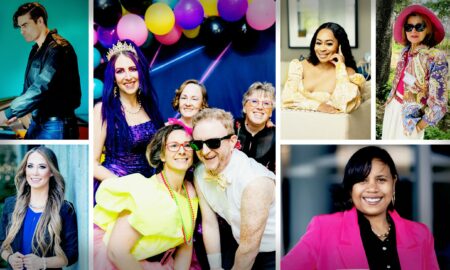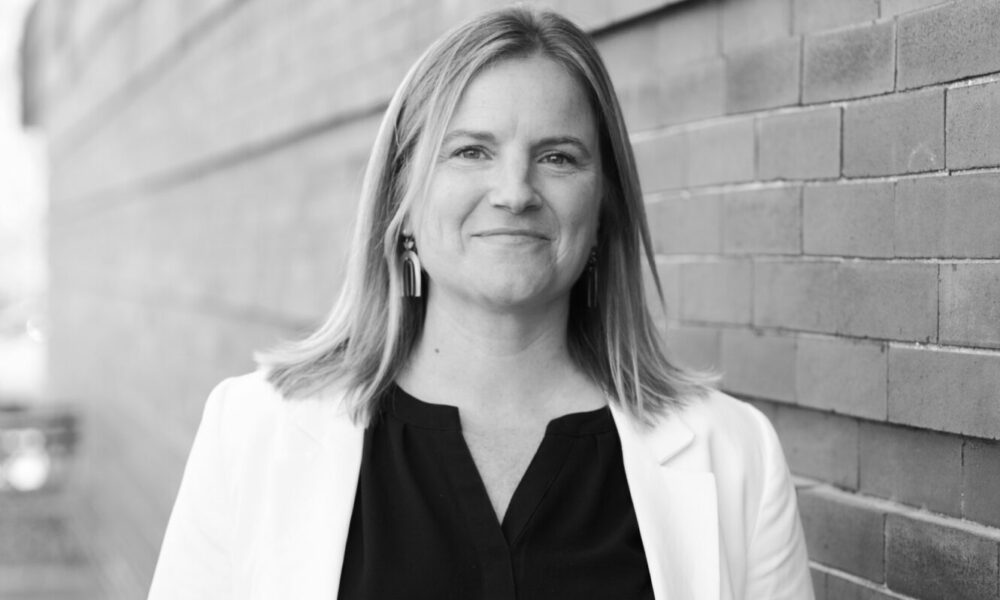

Today we’d like to introduce you to Anne Sutkowi-Hemstreet.
Hi Anne, thanks for sharing your story with us. To start, maybe you can tell our readers some of your backstory.
I am a queer parent of two young kids – ages 4 and 7. My wife and I have been married for almost 11 years. We lived in North Carolina in 2011-2014, moved to be closer to family while our children were young, and then came back to North Carolina in 2021. When we moved back to North Carolina, one of the first things I did was join several queer family groups on social media. In those spaces, I put a call out to families to have a casual play date at a local park so my kids (and my wife and I) could connect with other families like ours. 75 people showed up to the first play date! From there, we continued hosting casual play dates and realized that this was filling a need in our community because people kept coming out, and new families came every time.
During play dates, I was having conversations with families about the usual things families with young kids talk about – sleep schedules, work/family balance, behavior challenges, etc. But I was also having a lot of conversations about less than affirming preschool and elementary school experiences, how to talk with grandparents about gender, what names our kids call us, what children’s books and shows have families likes our and represent gender diversity, and what pediatricians are affirming to LGBTQIA+ families and gender diversity.
Where we previously lived, I had been part of leading a community effort to build a more LGBTQIA+-affirming community, and some of that work included developing and implementing training and resources for preschools and elementary schools to be more LGBTQIA+ and gender-affirming. I also have experience with community organizing and advocacy work. It sounded like there was a need and motivation among LGBTQIA+ families in Durham County, Wake County, and beyond to start engaging in advocacy at individual schools and at the district level to make schools more safe, inclusive, and affirming for LGBTQIA+ families and gender-diverse children. And from there, Rainbow Collective for Change was born.
Rainbow Collective for Change is exactly what it sounds like – it is a collective of individuals, families, organizations, business, schools, educators, healthcare providers, etc., that is committed to making our community a more safe, more inclusive, and affirming home for LGBTQIA+ families and children. For a little over a year, I have spent time building relationships with LGBTQIA+ and ally community members of all races, cultural backgrounds, ages, abilities, sexual orientations, genders, and faiths to create opportunities for connection, affirmation, growth, and change. All that Rainbow Collective for Change (RCC) has accomplished can be attributed to so many community members – LGBTQIA+ or allies – who advocate within their spheres of influence and contribute what they can to turn ideas into action.
RCC officially started this work in February 2022 and has accomplished so much in a little over a year. We have trained over 100 educators in North Carolina and provided 30 Rainbow Kits to classrooms. We host monthly bilingual Rainbow Story Times in partnership with Durham County Library and have an average of 65 people in attendance. We host quarterly play dates with an average of 95 people in attendance. We have given away more than 500 LGBTQIA+ and gender-inclusive children’s books to families that attend our events thanks to grant funding provided by Durham County Cooperative Extension. We host family workshops at preschools and elementary schools to engage families in conversations about diverse families and gender diversity.
We advocated for several months with Durham Public Schools district for an LGBTQIA+ and Gender Supports Policy – after hearing from so many families and educators about discrimination and harm being caused in many schools across the district. In December (after 9 months of relentless advocacy by RCC), DPS Board of Education unanimously passed a policy. In January, they amended the policy to include curriculum and materials expectations, and they now continue the work by forming an LGBTQIA+ task force. We hope to support families in other counties to advocate for similar policies in their districts.
Doing this work during this political climate has been challenging to say the least. For example, I am literally spending my life’s work advocating for schools to do what current legislative bills would prohibit. I hear daily from educators who say they want to be affirming but they don’t want to lose their jobs, and they are scared if they read a book that includes two moms (like my family) or share their pronouns. Then I start to think, should I be scared? Am I putting my family in danger by doing this work? Then there are other times when I think what we are doing isn’t enough or is too simple or silly. And then I think we must be doing something right if so, many people are angry and pushing back on the very strategies we are implementing. Right?
We all face challenges, but looking back, would you describe it as a relatively smooth road?
In some ways, I know that this last year could have been a lot more challenging at a different time or in a different location. And in the same vein, it is MORE challenging at this very moment BECAUSE of this time (2023) in this location (North Carolina). The entire country has seen a record number of anti-LGBTQIA+ – particularly anti-transgender – bills across the country. North Carolina has – at my last count – 10 of their very own. This is a very hostile environment right now for LGBTQIA+ people – especially for transgender youth and LGBTQIA+ people of color – and it feels like a dangerous time for us to “be out,” congregate, advocate, and speak up. And at the same time, it feels more important than ever to be with each other and speak up louder than ever for our children and for those in the LGBTQIA+ community that are most marginalized.
I would say one of my biggest challenges leading this work is the arguments from administrators and community members that are not based on facts but yet they don’t want to listen and learn. Contrary to what the small but loud group of folks say against LGBTQIA+ inclusion, it IS developmentally appropriate to talk about gender with young children – you already are. From day 1. However, you are likely only sharing binary stereotypes and limited expectations rather than giving children an opportunity to freely explore who they are and have the words to describe it. Contrary to what that same group says, you can talk about families with LGBTQIA+ grown-ups without talking about sex because families are simply people who love and support each other. And if you can talk about a mom and dad family without talking about sex, you can talk about my family. And Also contrary to what they say, we all benefit from reading diverse children’s books because we all benefit from seeing ourselves in books and seeing people who are different than us.
Another challenge for me is the feelings – anger, fear, sadness, frustration, doubt, compassion, hope, disappointment – that accompany this work. I can easily become consumed with these feelings. I often think this work would be easier if I cared less. But then, I am sure I am better at this work because I care.
Alright, so let’s switch gears a bit and talk business. What should we know?
Rainbow Collective for Change is a grassroots organization of LGBTQIA+ families and community members building more safe, inclusive and affirming spaces for LGBTQIA+ families. We also aim to support all families in raising a generation of LGBTQIA+ and gender-inclusive, anti-racist, and anti-ableist humans.
We focus our efforts on supporting LGBTQIA+ families and children ages preconception through 12. We know that there are many incredible LGBTQIA+ organizations supporting teens and adults, but none in the area (and very few in the country ) focus solely on young children and their families. We see this as primary prevention – maybe someday, this work will result in a lower percentage of LGBTQIA+ teens attempting or seriously considering suicide, a lower percentage of LGBTQIA+ teens being kicked out of their homes, a lower percentage of LGBTQIA+ dropping out of school. Maybe this generation of children will read more diverse children’s books, have the language to talk with people who are different than them, and welcome everybody for who they are.
We are a very young organization. We are always looking for community members and businesses that can contribute skills, time, ideas, or money. We also ask people to make the connections – be sure to share about Rainbow Collective at your child’s school, with your company, at your church. This is how the change happens.
If we knew you growing up, how would we have described you?
As a child, I had a lot of interests and was very dedicated to my academics, music, swimming, and running. I grew up in Michigan with my parents (mother and father) and my younger sibling (brother), and we moved to California when I was 14. After that, my parents divorced, and I moved around a lot and on both East and West Coasts of the US. I always struggled to find a sense of belonging with any specific friend group in school. I always felt different and like I didn’t “fit in” anywhere. I struggled with depression and anxiety for a good portion of my 20s. It wasn’t until my late 20s that got an undergraduate degree in Psychology and then pursued a Master of Public Health degree at UCLA. It also wasn’t until my late 20s that I settled into my queer identity and met my wife, Allyson. That said, I don’t think my 8-year-old self would be at all surprised that I’m queer, a committed parent, and passionate advocate for social justice and equity.
Contact Info:
- Website: www.rainbowcollectiveforchange.org
- Instagram: @rainbowcollectiveforchange
- Facebook: www.facebook.com/rainbowcollectiveforchange
- Linkedin: https://www.linkedin.com/in/asutkowi/
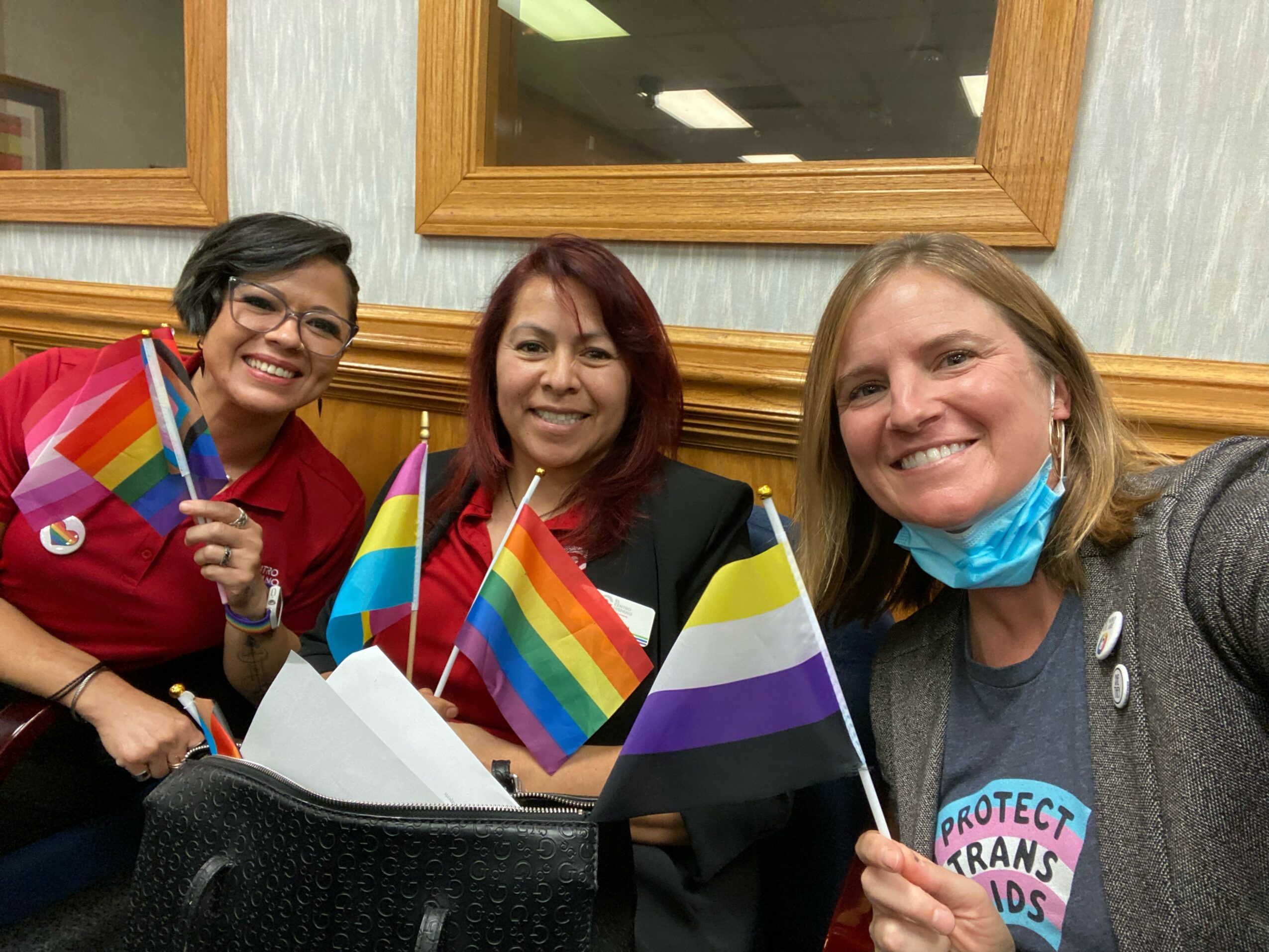
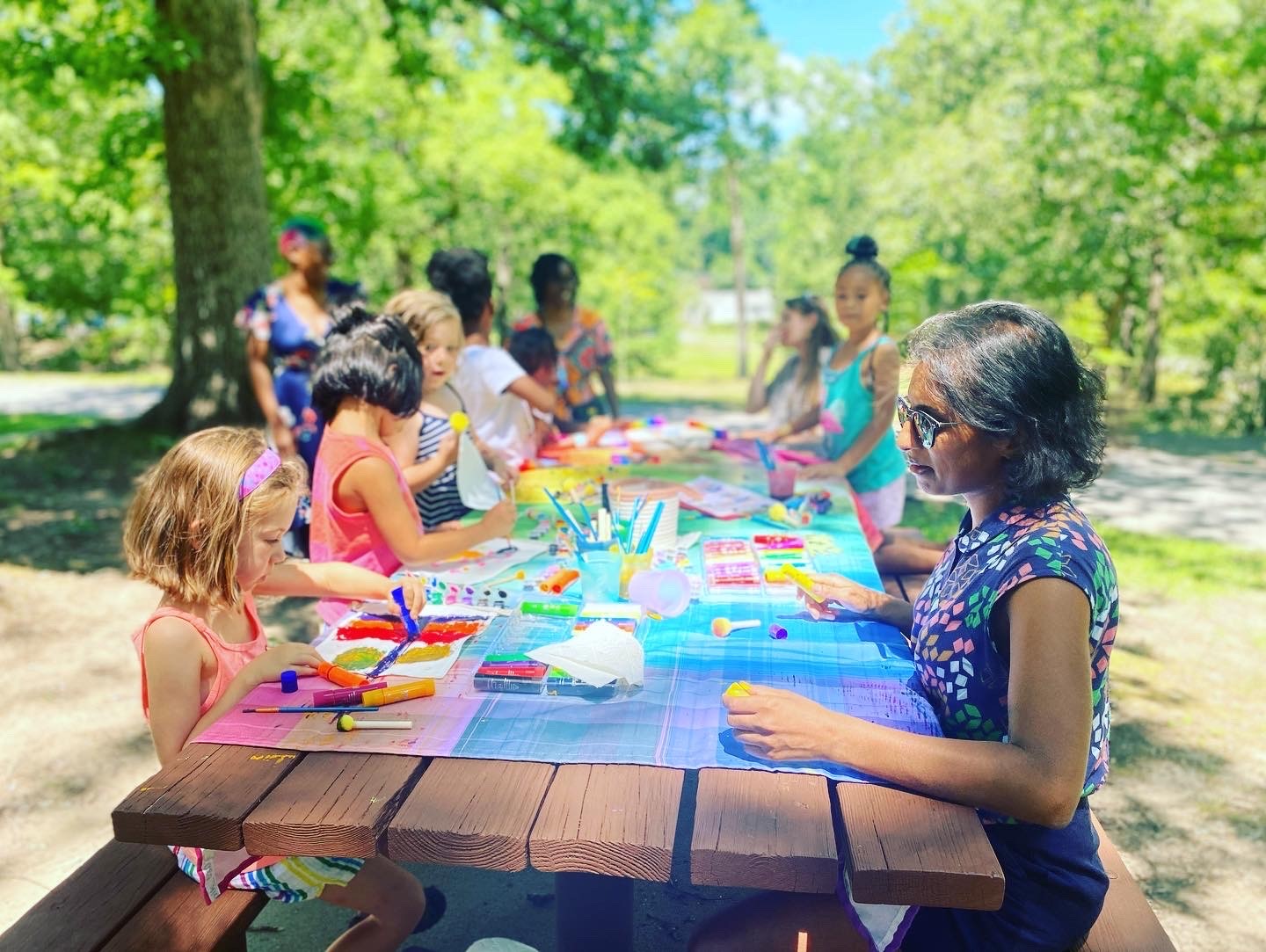
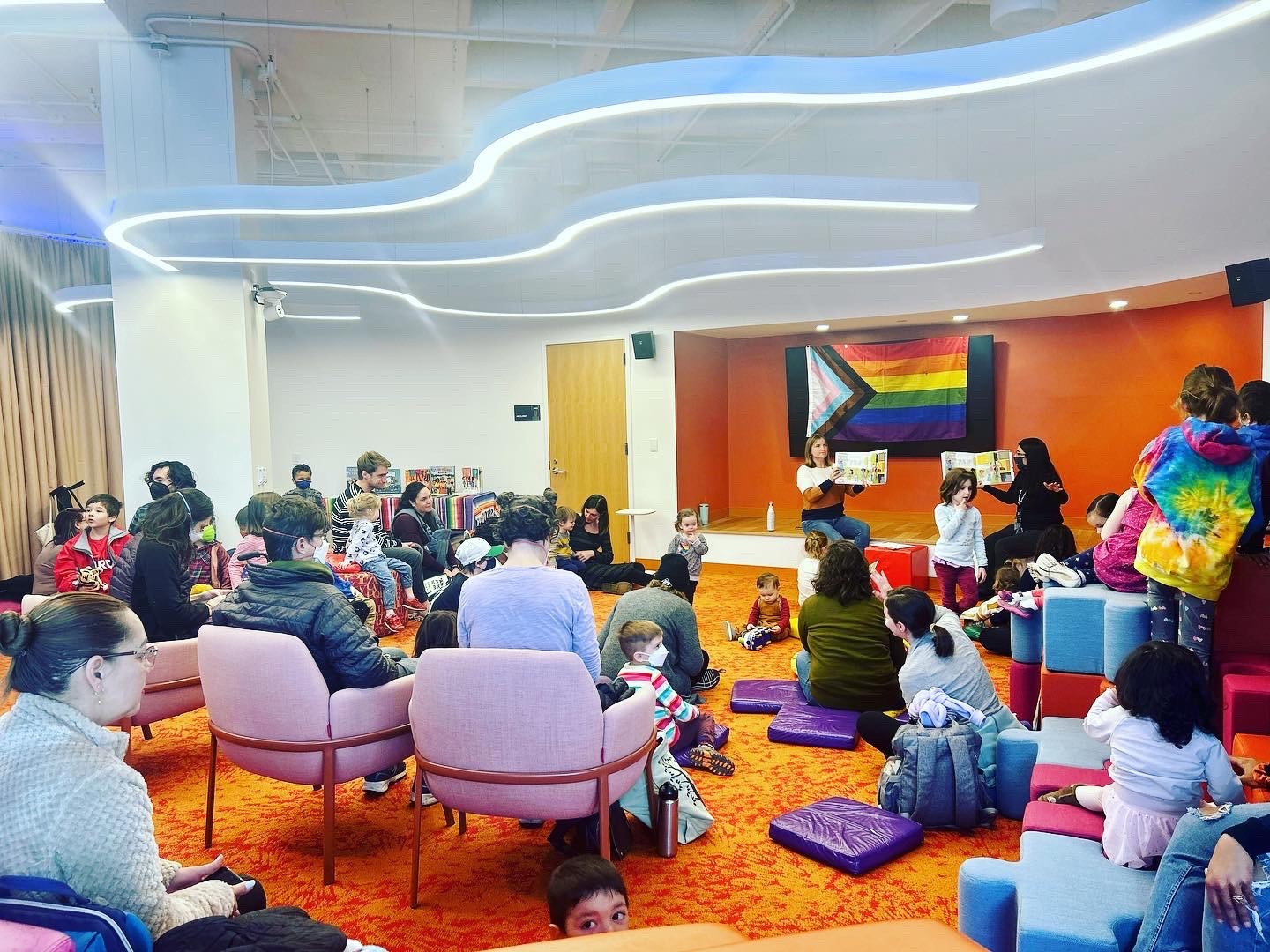
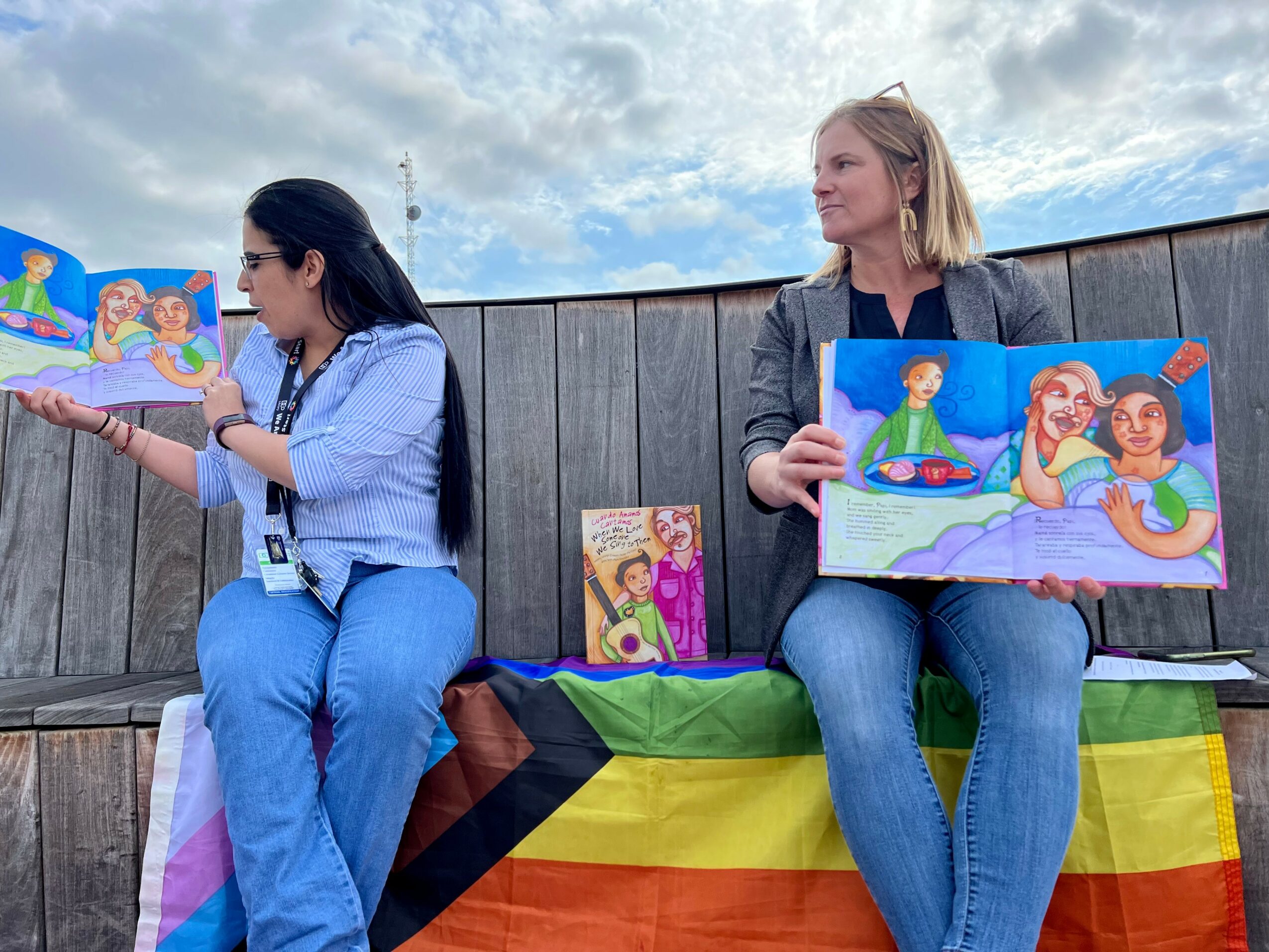
Image Credits
Anna Carson-Dewitt
Taylor Myers
Anne Sutkowi-Hemstreet

